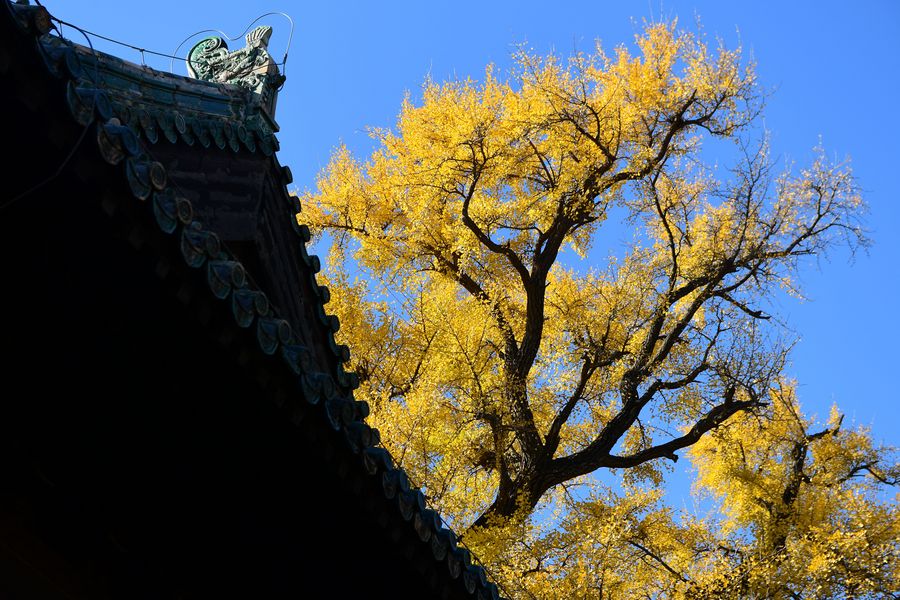China Focus: Beijing quests for smarter, greener, coordinated development

The Olympic Tower is illuminated in Beijing, April 26, 2019.(Xinhua/Yin Gang)
A quick look at what Beijing has achieved in 2019 and its plan for the future.
BEIJING, Jan. 12 (Xinhua) -- China's capital city has moved on a fast track to foster new momentums for high-quality development, gearing up toward a smarter, greener and more harmonious tomorrow.
"We have ensured the success of a series of big and joyful events, maintained steady and sound economic and social progress," said mayor Chen Jining while delivering the government work report Sunday at the annual session of the municipal people's congress.
The city achieved a GDP growth of around 6.1 percent to 6.2 percent in 2019 and saw its resident's per capita disposable income increase by around 6.3 percent in real terms.
Significant progress was made in 2019 in building the capital city into a national innovation center, with R&D spending intensity reaching around 6 percent of GDP, and a 13.1-percent increase of applications for invention patents, according to the report.
To develop high-end, precision and sophisticated industries with stronger efforts, an action plan will be implemented to boost the 5G industry, enhancing the city's 5G telecommunications network, Chen said, noting that the city will build an AI-based open-source innovation platform and introduce more application scenarios.

Ginkgo trees against the blue sky at Dajue Temple in Beijing. (Xinhua/Yin Dongxun)
Last year, the Chinese capital sped up efforts against air pollution by enhancing law enforcement on mobile pollution sources and the precision control over dust, bringing down its average PM2.5 density to 42 micrograms per cubic meter.
With a city-wide mandatory garbage sorting system starting in May, Beijing is pushing forward waste sorting in residential communities step by step and aiming at establishing sorting demonstration zones in 90 percent of the sub-districts and townships.
Landmark progress has been made in pushing for the coordinated development of the Beijing-Tianjin-Hebei region, further relieving Beijing of functions nonessential to its role as capital.
A total of 399 companies in general manufacturing was shut down and 66 marketplaces and logistics centers relocated and upgraded in Beijing last year, the report said.
The construction of Beijing's sub-center in the eastern suburb of Tongzhou District is in full swing on the first anniversary of a control plan for the area as well as the relocation of the capital's key municipal organs.
As one of Beijing's "two new wings" along with Xiong'an New Area in neighboring Hebei Province, the sub-center saw smooth progress in building a 1.3 million-square-meter underground transportation hub, the largest of its kind in Asia. The hub is scheduled to be ready for traffic by the end of 2024.
Priorities will be given to the sub-center in selecting venues for pilot programs, key projects, high-performance companies and technological applications, the mayor said.
The city expects 6-percent GDP growth in 2020.
- Beijing 2022 preparation progresses amid fight against novel coronavirus
- Beijing railway station intensifies preventive measures to curb novel coronavirus epidemic
- "Ready, set, go!" New York's Chinese community kicks off 2-year countdown to Beijing 2022 with a flash mob
- Moroccan national airline RAM launches 1st direct flight from Beijing to Casablanca
- Beijing Shijingshan Amusement Park decorated for Spring Festival
